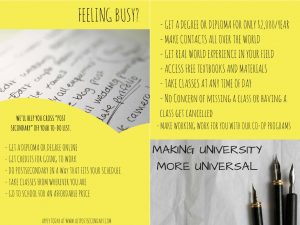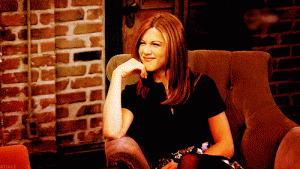Hello, Internet.

So, you might remember a little thing called the launch cycle. In case you don’t, here’s a reminder of what it is:

I called it the launch cycle, but I should have probably written it as the LAUNCH cycle, capitalized, because it’s actually an acronym:
L: Look, listen, and learn. This is the part where you need to take in information from around you; identify issues, find out what subjects interest you, meet interesting people, etc.
A: Ask tons of questions. This is the part where you start seeking out more specific information instead of just taking in the information that is given to you. This might be doing research, interviewing someone, reaching out to someone who is a professional at what you’re trying to learn about, etc.
U: Understand the process or problem. This is where you really need to take the information you’ve learned in the previous two steps, process it, and think about applying it. You should know a lot about whatever subject is relevant to what you’re doing by this point, although you can always learn more.
N: Navigate ideas. This is the part where you actually start coming up with a plan. This might be working out a solution to a problem, thinking of a product, designing an activity, etc.
C: Create a prototype. Now that you have ideas, you have to actually do something with them. This is the part where you actually make your own thing that you came up with in the past step, whatever that thing was.
H: Highlight and fix. This is the part where you look at whatever you created, or get other people to look at what you’ve created, and try and figure out what you could do better. This essentially takes you back to the first step as you try and improve. This is technically the last step, and it’s an important one, as we like the revision process here in PLP.
If you have trouble remembering that, I made this handy graphic to help you out:

(Here is a more readable version)
Now, those of you who did know what the LAUNCH cycle is probably know where this is going.
Yep, that’s right: We just had our annual spring exhibition. This year, the focus was on the UN’s sustainable development goals. We were split into groups, with each group being assigned a goal, and then each person creating a project related to the goal they were assigned.
The goal I was assigned was quality education, or more specifically, ensuring “inclusive and equitable quality education and promote lifelong learning opportunities for all”. My project was about making post secondary more accessible, or to put it in slightly more catchy terms, making university more universal.
The idea for this project appealed to me for a few reasons: I’m going to go to university myself in a couple years, and I have an idea of what I want to do and where I want to go, so I’ve looked into prices a bit, and they’re pretty ridiculous– less so in Canada than the States, but still concerninglt high for no discernible reason. This is also just something that has never made sense to me; a level of education that is required for a lot of jobs is not available without the income you get from said jobs.
Now, unfortunately, I was not able to actually go out and create a university, so my project was mainly theoretical, with the end product being some ads for the university experience I designed.
I wanted to address a few different problems: How expensive university is, the fact that it can be difficult to work while also attending school, and the fact that for people who are in remote locations, university might require travelling far from home. Separate solutions for these things do exist (a fact very bluntly pointed out to me by a couple of people who asked about my project, so shoutout to them), seeing as they’re widespread problems, but I wanted to come up with a way to address multiple issues at once.
The main ideas I brought together were online classes (and, specifically, being able to get a diploma or degree online, which is less common than taking just some classes online) and doing a co-op program. I wanted to make sure that there was a way for students to still be making contacts and getting real world experience even with online classes, so I figured that the best way to ensure that was by them being given the opportunity to do that through said classes.
I made some ads to explain my project– a pamphlet, and a couple of posters (one of which I wasn’t a big fan of because it felt kind of misleading, and one of which I liked but wish I had put more information on):



With that done, it was time for the exhibition itself.
Since our theme was education, we decided to make the theme of our area (conveniently, a high school classroom) school and education. This included playing school themed music, serving the kind of food you would find in school lunches, wearing university hoodies, and having desk chair races.


As I’m sure you can clearly tell from that panorama, I was sitting over by the door, looking very professional and school-ready:


(Apparently I gave off a Sean Penn vibe what with the being overly lax in a classroom and the gay pride flag.)
I’d say the exhibition went pretty well; the fact that we were already in a classroom made setup pretty straightforward, and while I spoke to a decent amount of people about my project, it didn’t feel super overwhelming or crowded. I did briefly leave my desk chair to look at some other areas of the exhibition, all of which seemed interesting, but I’m ultimately happy that I ended up doing a project themed around education.
I do wish that I could have done more with this project; for such an expansive topic, ending up with only some pamphlets and posters seemed a little skimpy.
Now, it’s almost time to take a break from receiving quality education for the summer, so…
Toodles.






















